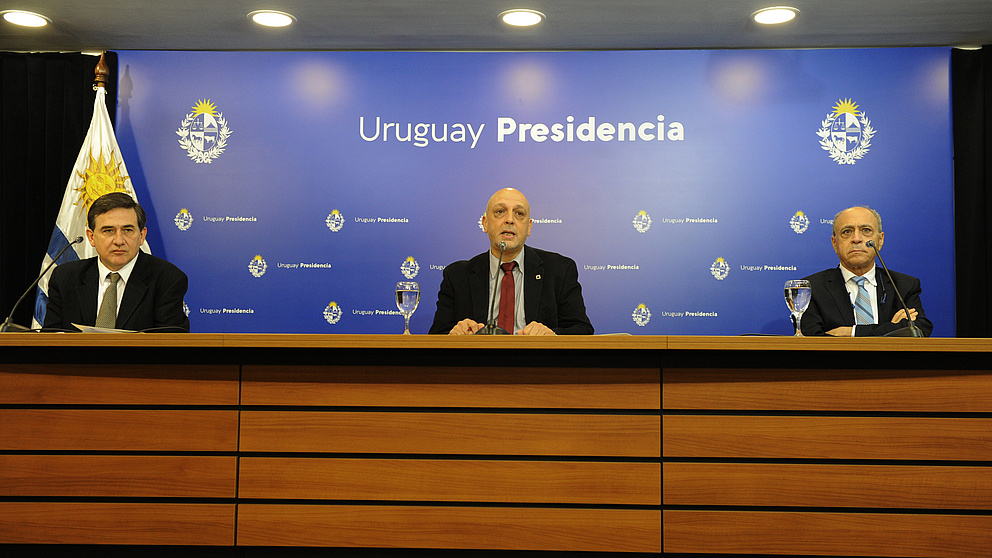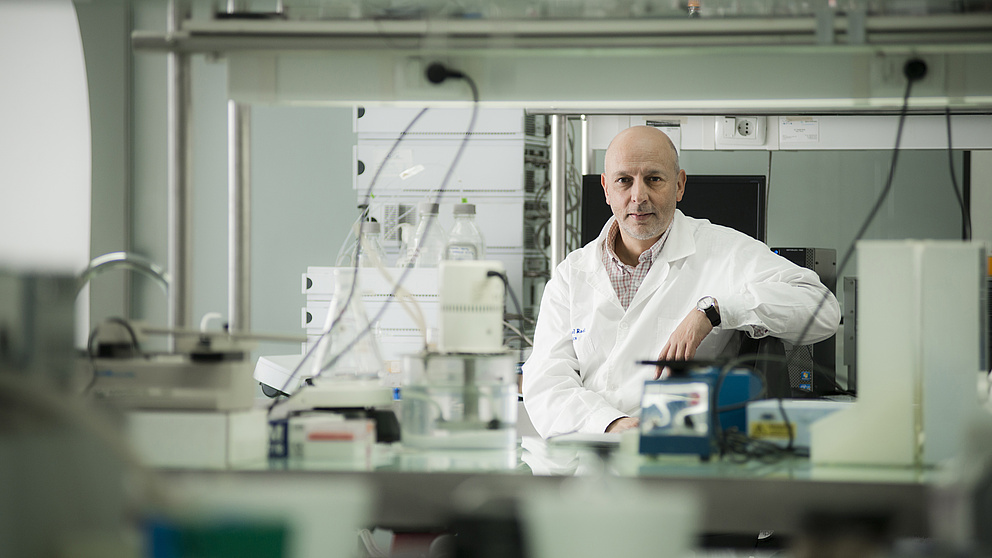
Contact
Press, Communications and Marketing
Tel.: +49 228 833-144
Fax: +49 228 833-441
presse[at]avh.de

Providing policy advice in times of a pandemic is not always an easy task for scientists, as virologists in e.g. the USA, Brazil or sometimes even Germany could tell you. In Uruguay, on the other hand, cooperation between researchers, academics and the public was excellent, says Humboldt Research Award winner Rafael Radi, a biochemistry and biomedicine specialist and founding member and general coordinator of the science advisory group GACH. The laudation by Uruguay’s president in honour of the GACH members was broadcast nationwide.
Humboldt Foundation: Just recently, Nature lauded the establishment of the Uruguayan science advisory group GACH as exemplary. What was so special about this committee?
Rafael Radi: In April 2020, at the start of the pandemic, founding a science advisory group like GACH in Uruguay was an entirely new idea. Institutionalising policy advice from scientists – that was something that had never been done before. Many other organisations enquired with us back then, including the Robert Koch Institute, the International Network for Government Science Advice (INGSA) of the UNESCO, and the WHO. GACH was an innovation for a country where there had previously been little dialogue between scientists, policy-makers and the public.

What was the greatest challenge?
Purely from a scientific perspective it was clear what we had to do to curb the pandemic. But in politics you have to weigh up a variety of interests. That was sometimes rather stressful; we researchers, who threw ourselves into addressing the issue, suddenly had to deal with political tensions and debates. Our job was to balance out the various viewpoints and accomplish something without really having any political influence. So I as the general coordinator tried to hold back my personal opinion somewhat and present a consensus of the opinions of all involved researchers. We as delegates of our universities were independent and working on a voluntary basis, so we were always free to speak our minds. Most of the time that was a productive process; it was only over the months of March to May 2021 that things were difficult because the government really had to decide on massive restrictions when incidences were rising rapidly due to the P1 or Gamma variant from Brazil.
How did the science advisory group evolve?
Initially our consultations were only about medical issues and pandemic management; the government wanted to continue to make decisions on social and economic issues by itself. After a few months we realised that it was necessary to also draw on and consider knowledge from other disciplines such as sociology, psychology and economics. We had to get people to change their behaviour; that required us to look beyond the horizons of our own disciplines. What was needed was not purely virological expertise but interdisciplinarity.
Could you give us an example?
It was, for example, important to hear from our colleagues in psychology and sociology what people thought about the pandemic and how they perceived the risk of infection. We discovered that they thought covid-19 was something that happened to other people, but not to them and not to their loved ones, therefore they could safely meet with friends. That taught us how important good communication is. Knowledge not only has to be compiled and presented, it also has to actually reach people. We worked on how we expressed ourselves, and always remained as objective as possible. Knowledge from other disciplines helped us communicate.
What was the response you received?
We consider our communication with the public a significant achievement. We were seen as highly credible, near 90 percent of the population were supportive of GACH. When we got involved, people believed us; we were perceived as objective even when we recommended restrictions to public life. We reported to the senate, our opinion had a positive impact on the political tensions. You see, nothing is more harmful in a pandemic than political disagreements; they present a risk, they aid the pandemic.
How would you personally sum up the work of GACH?
There are two things I had not expected and that I consider major payoffs: Firstly, our dialogue with the public – thanks to GACH, science in general gained greater appreciation. The number of students who chose to study a natural science subject increased by 45 percent this year. And the second great dividend was the pleasure and enjoyment we gained from cooperating with other disciplines. It was very satisfying to see mathematicians debate with intensive care physicians, biologists with virologists, sociologists with biochemists. Never before had we conducted an interdisciplinary dialogue of such broad scope. That’s simply phenomenal and felt very rewarding to me. It was a pleasure to see my colleagues in mathematics become so visible, their work is usually far from the public eye.
